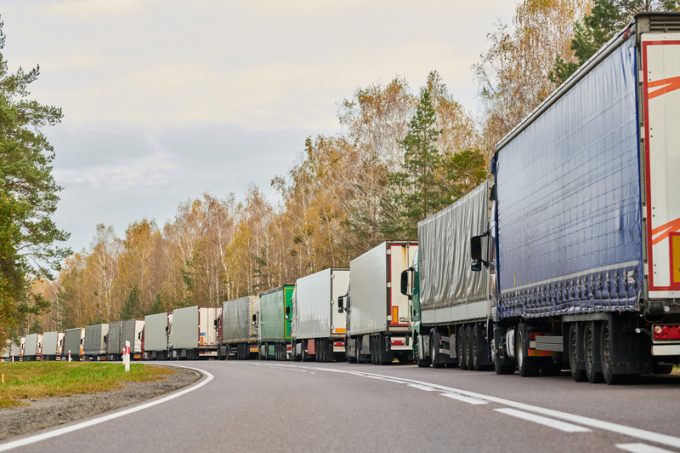Flights cancelled as German airport workers strike
As noted last week, German airports are facing chaos today as Ver.di union members down ...

Weekend protests in Poland prevented hundreds of trucks from crossing the Poland-Belarus border at the village of Kukuryki, creating queues of up to 40km, according to some local sources.
According to the Sixfold border crossing traffic monitor, the queue of trucks currently waiting to leave Poland for Belarus stretches 14km.
Some 200 campaigners, many Ukrainians, gathered over the weekend in a bid to prevent trucks crossing the border.
The protest was a repeat of direct action last week. AP drone footage from last ...
'Disastrous' DSV-Schenker merger would 'disrupt European haulage market'
New senior management for DSV as it readies for DB Schenker takeover
Volumes set to 'fall off a cliff' as US firms hit the brakes on sourcing and bookings
Asian exporters scramble for ships and boxes to beat 90-day tariff pause
Amazon pushes into LTL for small package fulfilment and UPS does a u-turn
Temporary tariff relief brings on early transpacific peak season
Pre-tariff rush of goods from US to China sees air rates soar, but not for long
Forwarders 'allowing the fox into the chicken run' by supporting 'hungry' carriers

Comment on this article